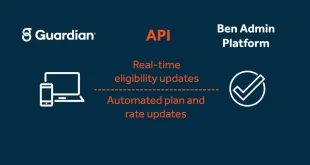
Introduction:
Health insurance is a vital aspect of managing healthcare costs and ensuring access to necessary medical services. However, many people may not fully understand their coverage or how to make the most of their health insurance benefits. With healthcare expenses on the rise, it’s essential to maximize the value of your health insurance policy. In this guide, we’ll explore valuable tips to help you get the most out of your health insurance benefits, enabling you to maintain optimal health while minimizing out-of-pocket expenses.
- Understand Your Health Insurance Plan:
- Familiarize yourself with the specifics of your health insurance policy, including coverage limits, deductibles, co-payments, and coinsurance.
- Review the summary of benefits provided by your insurer to know what services are covered and any limitations or exclusions.
- Pay attention to network restrictions, as visiting in-network healthcare providers typically results in lower out-of-pocket costs compared to out-of-network providers.
- Take Advantage of Preventive Services:
- Most health insurance plans cover preventive services such as vaccinations, screenings, and wellness exams at no additional cost.
- Schedule regular check-ups and screenings recommended for your age and health status to detect potential health issues early.
- By staying proactive about preventive care, you can prevent more serious health conditions and avoid costly medical treatments in the future.
- Know Your Rights and Benefits:
- Understand your rights as a policyholder, including the procedures for filing claims, appealing denials, and accessing emergency care.
- Explore additional benefits offered by your health insurance plan, such as telemedicine services, mental health coverage, or discounts on gym memberships.
- Stay informed about changes to your health insurance policy, including updates to coverage options or modifications in co-payment requirements.
- Optimize Prescription Drug Coverage:
- Review your health insurance plan’s prescription drug formulary to understand which medications are covered and at what cost.
- Ask your healthcare provider about generic or lower-cost alternatives to brand-name drugs to save money on prescription expenses.
- Take advantage of mail-order pharmacy services or prescription discount programs provided by your insurer to lower prescription costs.
- Utilize Health Savings Accounts (HSAs) or Flexible Spending Accounts (FSAs):
- If eligible, contribute to an HSA or FSA to set aside pre-tax dollars for qualified medical expenses, including deductibles, co-payments, and prescription drugs.
- Take advantage of the tax benefits associated with HSAs and FSAs, which can help reduce your overall healthcare costs.
- Plan your healthcare expenses carefully to maximize the funds in your HSA or FSA while avoiding penalties for unused balances.
- Coordinate Coverage with Other Insurance Policies:
- If you have multiple insurance policies, such as employer-sponsored coverage and spouse’s insurance, understand how they coordinate benefits to minimize out-of-pocket expenses.
- Coordinate coverage for dependents to ensure they receive comprehensive healthcare benefits without duplicating coverage unnecessarily.
- Be aware of coordination of benefits rules to avoid overpayment or underpayment of claims when multiple insurance policies are involved.
- Stay Informed During Life Changes:
- Update your health insurance information promptly when experiencing significant life events such as marriage, divorce, birth of a child, or job loss.
- Understand how life changes may affect your health insurance coverage, eligibility for subsidies, or enrollment in alternative healthcare plans.
- Consider consulting with a healthcare insurance advisor or financial planner to navigate complex insurance decisions during major life transitions.
- Be Proactive in Managing Healthcare Costs:
- Compare costs for medical services and procedures, including doctor’s visits, lab tests, and surgeries, to find the most cost-effective options within your network.
- Negotiate with healthcare providers for discounted rates or flexible payment plans, especially for elective procedures or services not fully covered by insurance.
- Keep detailed records of medical expenses, including receipts, explanation of benefits (EOB) statements, and invoices, for accurate tracking and potential tax deductions.
Conclusion: Maximizing your health insurance benefits requires proactive management, understanding your coverage, and taking advantage of available resources. By following these tips, you can optimize your health insurance policy to meet your healthcare needs while minimizing financial burdens. Remember to stay informed, utilize preventive services, and explore cost-saving opportunities to make the most of your health insurance benefits and maintain your overall well-being.
 Accident Lawyers Offshore Accident Lawyers – Offshore Injuries & Jones Act Lawyer
Accident Lawyers Offshore Accident Lawyers – Offshore Injuries & Jones Act Lawyer



